Over 30 years of anarchist writing from Ireland listed under hundreds of topics
Torture, Murder & Exclusion: Ireland’s first 10 years of Independence
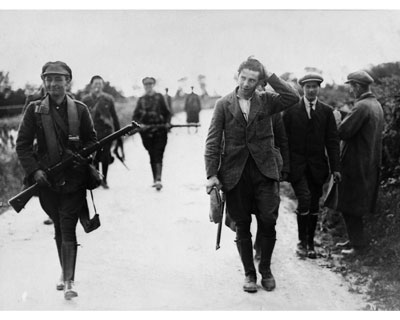 The 1916 proclamation, the manifesto of the 1916 rebels, states: “The Republic guarantees religious and civil liberty, equal rights and equal opportunities to all its citizens, and declares its resolve to pursue the happiness and prosperity of the whole nation and of all its parts, cherishing all the children of the nation equally, and oblivious of the differences carefully fostered by an alien government, which have divided a minority from the majority in the past.”
The 1916 proclamation, the manifesto of the 1916 rebels, states: “The Republic guarantees religious and civil liberty, equal rights and equal opportunities to all its citizens, and declares its resolve to pursue the happiness and prosperity of the whole nation and of all its parts, cherishing all the children of the nation equally, and oblivious of the differences carefully fostered by an alien government, which have divided a minority from the majority in the past.”
These noble aspirations would become almost a bible of Irish Republican ideals and within six years, after the end of the War of Independence in 1922, a section of that movement had a chance to implement these ideals. However the society established after the war of independence “The Irish Free State” was a pale shadow of even the most modest interpretation of this document. Civil liberties were almost non existent, citizens were not equal, with women becoming second class while the poor were plunged further into destitution.
Revolutionary Organization in the age of Networked Individualism
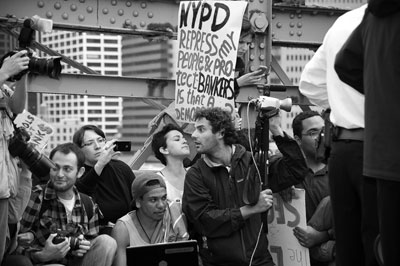 The revolutions and revolts that swept the world in 2011 took almost everyone by surprise. One of the first strong attempts to explain why they happened is Paul Mason’s ‘Why It’s Kicking Off Everywhere.’ He argues that “the materialist explanation for 2011...is as much about individuals versus hierarchies as it is about rich against poor.” By far the most provocative element of his book is the idea that communications technology, in particular the internet, is transforming the way people behave and that a significant contribution to the revolts of 2011 lie in these changes. If he’s right it had profound consequences for the form and structure of revolutionary organisations including anarchist ones.
The revolutions and revolts that swept the world in 2011 took almost everyone by surprise. One of the first strong attempts to explain why they happened is Paul Mason’s ‘Why It’s Kicking Off Everywhere.’ He argues that “the materialist explanation for 2011...is as much about individuals versus hierarchies as it is about rich against poor.” By far the most provocative element of his book is the idea that communications technology, in particular the internet, is transforming the way people behave and that a significant contribution to the revolts of 2011 lie in these changes. If he’s right it had profound consequences for the form and structure of revolutionary organisations including anarchist ones.
This article also availale on audio & video, see end.
An anti-capitalist and environmentalist perspective on the Euro crisis
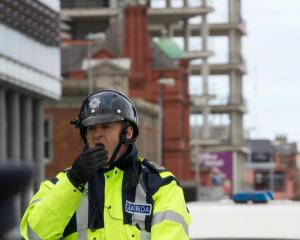
Paul Bowman gives a 40 minute presentation on the Euro as a moment of the internationalisation of capital and looks for a way of dealing with the crisis that goes beyond the alternative models of capital being argued for by the left. If the height of a crisis is not the moment to raise a discussion of an anti-capitalist alternative then when is? Beyond this he also warns against the stagest approach much of the left has adopted where the economic crisis is to be addressed first by a demand for growth and the environmental crisis ignored till later.
Protests greet Olympic showcase of normalisation and corporate privilege
.jpg) It was as if our streets were paved in gold as the Olympic torch made its way across this bright new shiny Northern Ireland. We listened to our local business leaders and political class lining up to praise this symbol of hope and reconciliation, but beneath this spectacle of spin and ‘regeneration’ smokescreen is a showcase of corporate class privilege and profiteering.
It was as if our streets were paved in gold as the Olympic torch made its way across this bright new shiny Northern Ireland. We listened to our local business leaders and political class lining up to praise this symbol of hope and reconciliation, but beneath this spectacle of spin and ‘regeneration’ smokescreen is a showcase of corporate class privilege and profiteering.
Do workers’ co-operatives help or hinder the building of a libertarian communist society?
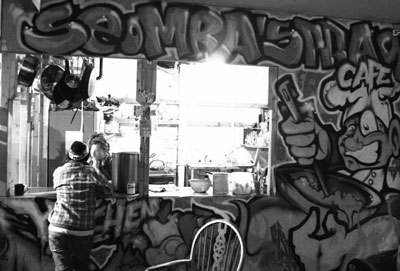 Workers’ co-operatives have always been championed by sections of the left and wider labour movement - from their advocacy by 19th century Welsh social reformer and utopian socialist Robert Owens to Proudhon through to their existence in various state capitalist countries today such as Cuba. While workers’ co-operatives can provide a small example of anarchist ideas based on self-management, direct democracy and mutual aid in action, we should not be blinded by their contradictions and should query their effectiveness as a strategy for real revolutionary transformation.
Workers’ co-operatives have always been championed by sections of the left and wider labour movement - from their advocacy by 19th century Welsh social reformer and utopian socialist Robert Owens to Proudhon through to their existence in various state capitalist countries today such as Cuba. While workers’ co-operatives can provide a small example of anarchist ideas based on self-management, direct democracy and mutual aid in action, we should not be blinded by their contradictions and should query their effectiveness as a strategy for real revolutionary transformation.
The Royal College of Surgeons Ireland and the Repression of Alumni, Fellows and all Hospital Workers in Bahrain
Witness Bahrain Ireland has called a demonstration this Tuesday because two RCSI alumni (who trained in Dublin) will be sentenced this Thursday (14th June) under scurrilous circumstances. It is hoped that bearing witness and raising awareness about this issue will prompt the RSCI to use its influence in Bahrain[2] to help persecuted medical workers (some of whom the RSCI employs and have trained). The two medical workers [due to receive their final sentencing on Thursday 14th] were arrested, tortured and sentenced in a military court for treating peaceful demonstrators who were victims of police brutality.[3] The RSCI response to this should be prompt, vigorous and completely unequivocal.
The Crises of Multi-culturalism: Racism in a Neoliberal Age - review
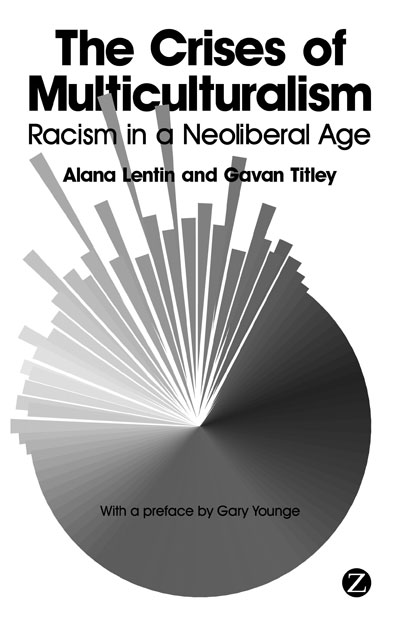 In November 2011, the Fine Gael mayor of Naas, Darren Scully sparked controversy when he announced on national radio that he would no longer represent “Black Africans”, due to their “aggressiveness and bad manners” and their tendency to “play the race card”. Ultimately, the controversy caused by Scully’s blatant and unambiguous racism forced his resignation as mayor.
In November 2011, the Fine Gael mayor of Naas, Darren Scully sparked controversy when he announced on national radio that he would no longer represent “Black Africans”, due to their “aggressiveness and bad manners” and their tendency to “play the race card”. Ultimately, the controversy caused by Scully’s blatant and unambiguous racism forced his resignation as mayor.
Dub: Bahrain Demonstration in Solidarity with Persecuted Medical Workers
Witness Bahrain Ireland are holding a demonstration in anticipation of the sentencing of Irish trained Bahraini Medics on 14th June. Following pro-democratic protests in February and March of last year they were arrested, tortured and sentenced in military... court for treating peaceful demonstrators who were victims of police brutality. Subsequently they have been retried in ‘Special Civilian Courts’ for multiple charges against the Regime and await their ultimate verdict.
Spain: Not waving but drowning - bailout tomorrow
 Spain began this week in bailout territory. Despite the increasingly shrill warnings of imminent catastrophe from Madrid, the battle of wills between the Spanish capital and Brussels, Berlin and Frankfurt has managed to avert the hour of judgement thus far. But can they achieve the aim of preventing the fall of Spain before the second Greek election?
Spain began this week in bailout territory. Despite the increasingly shrill warnings of imminent catastrophe from Madrid, the battle of wills between the Spanish capital and Brussels, Berlin and Frankfurt has managed to avert the hour of judgement thus far. But can they achieve the aim of preventing the fall of Spain before the second Greek election?
Old Media In the Age of The Internet - Why Bother With Radical and Underground Publishing - Video & audio
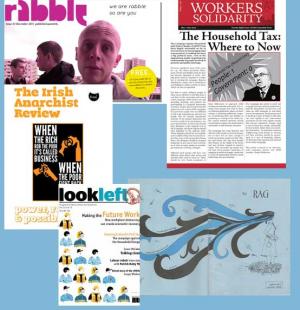 This session of the 2012 Dublin Anarchist Bookfair looked at the value of paper and ink when the net is usually declared the real frontier. We asked our panel to track some of the connections between todays underground radical press, and what went before.
This session of the 2012 Dublin Anarchist Bookfair looked at the value of paper and ink when the net is usually declared the real frontier. We asked our panel to track some of the connections between todays underground radical press, and what went before.

